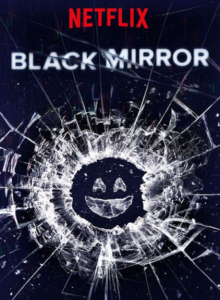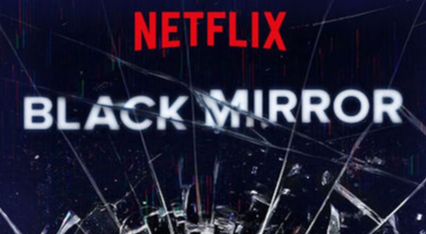Karis Fuller
Assistant Arts & Entertainment Editor
It’s no surprise that technology has transformed our lives. “Black Mirror,” a show formerly available only in Britain, transferred production rights to Netflix in 2016. The show presents a satirical twist on what life has become as people grow more dependent on technology. Creator and producer Charlie Brooker uses a compilation of standalone episodes to show how technology controls our lives. The latest installment aired on Netflix on Dec. 29. The wait was greatly anticipated. 
“‘Black Mirror’ is a confusing show,” Caitlin Johnstone, junior health science major, said, “But that’s why I was so excited to watch it; you do not know where the season is going to take you next.” With midterms coming up, a show like “Black Mirror” can be watched in segments and allow students time to study.
When it first hit television screens in 2011, the dark comedy achieved instant success. In 2017, the show won a British Academy Television Craft Award for best makeup and hair design, and in 2012 it won an International Emmy Award for best TV movie/mini-series. Each episode has a different cast, setting and reality. They examine the consequences of unexamined technologies: those that could exist in our own reality in the future.
The show’s title alludes to the screens people monotonously stare at throughout their daily lives. From the little black screen that fits in the palm of one’s hand to the 50-inch screens that plaster the walls of houses, escaping this ‘black mirror’ is impossible. Brooker and co-producer Annabel Jones portray these to be the most controlling aspect of our society, and it is one that we subject ourselves to every day.
Some may find the first episode of season one difficult to comprehend. Brooker and the cast, including Rory Kinnear and Lindsay Duncan, lead viewers into a world that is quite similar to our own, and provide onlookers with a fourth-wall perspective on various situations. For example, in one episode, the Prime Minister was asked to do questionable things as ransom to ensure the safety of the country’s beloved princess. All the viewer can do is sit back and watch deception unfold. The latest season hints at the irony of the audience watching the show on a black screen and that they are out of control like the characters in the anthology.
Those watching season four have become accustomed to its stand-alone episodes, meaning the viewer can choose to skip those that disinterest them and won’t miss any crucial information or shocking twists.
The episodes evoke viewers’ laughter, yet the issues they laugh at are realistic in the western world. In episode three of the second season, a cartoon character named Waldo gains popularity for his vulgar language and ends up running for a government official in a fictional English town. Aspects of the episode such as the propaganda and money used to endorse the campaign are very similar to the current standings in the United States and the election of a TV personality to the oval office.
Along with storylines that shock, grip and scare the viewer, the outstanding production of these short dramas is what carries the show. With some having a darker undertone than others, the variety makes any episode relevant to us all.




Be First to Comment